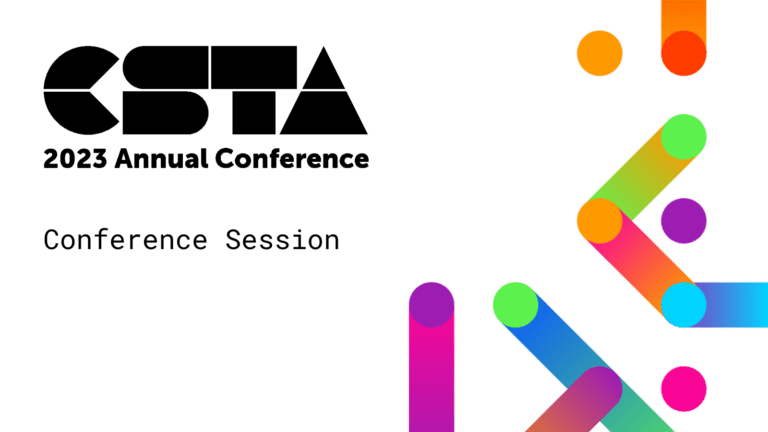Resources Library
You must be logged in to access resources in the Resources Library. All resources are free for CSTA members. Certain resources are availble to those with a CSTA account. To become a CSTA member, or to create a free CSTA account, head to our Join page. Looking for a specific resource or have one you’d like to suggest?
FEATURED RESOURCES
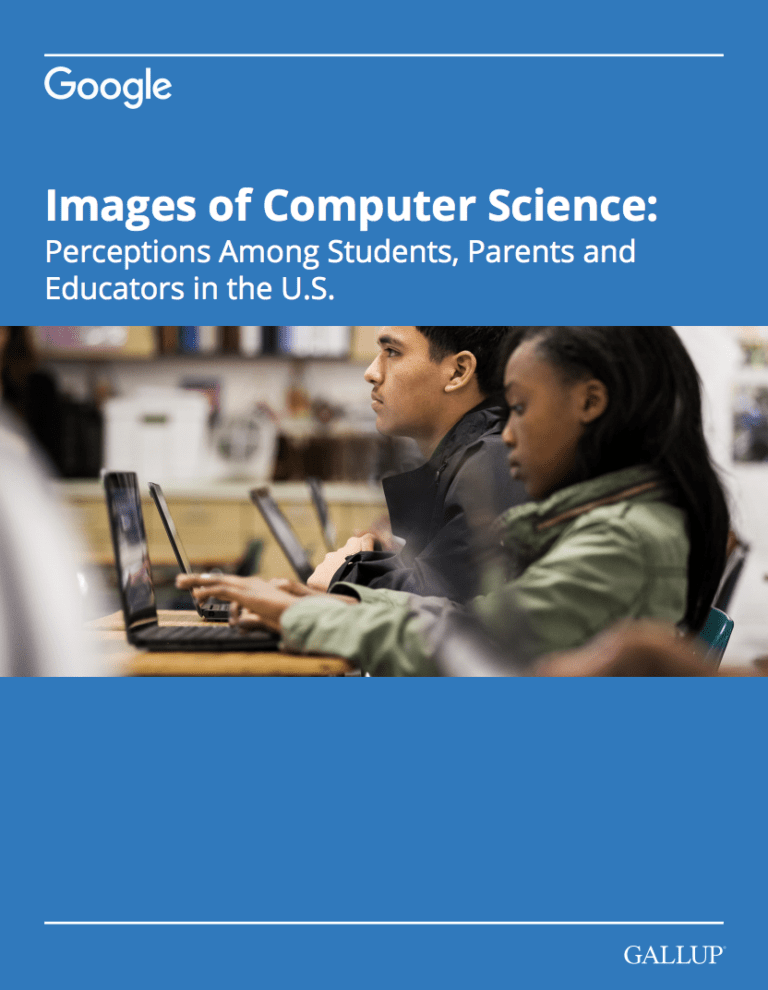
Read Images of Computer Science: Perceptions Among Students, Parents, and Educators in the U.S.
Explains how entrenched stereotypes and lack of visible role models could be contributing to the lack of racial and gender...
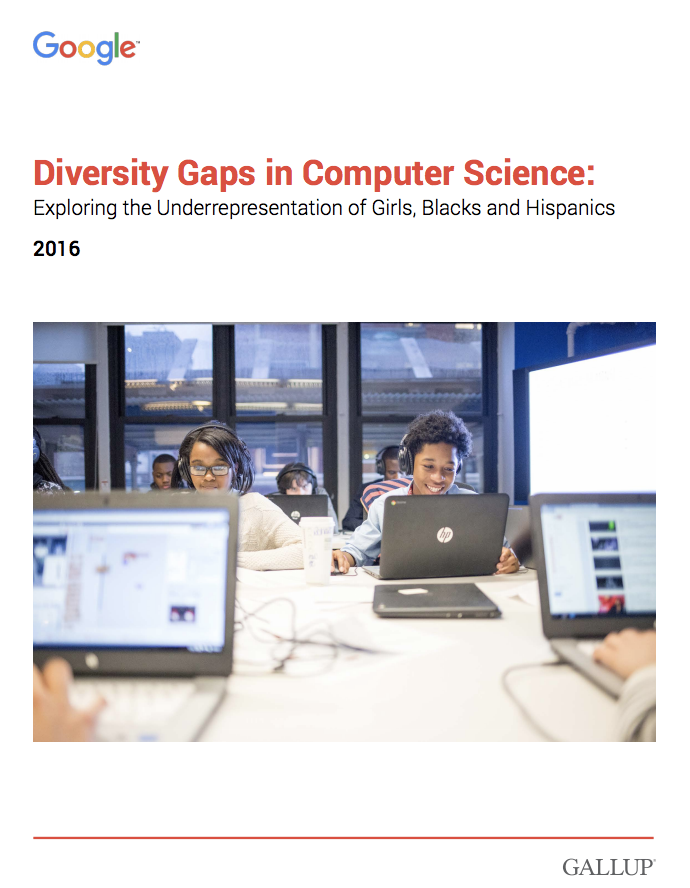
Read Diversity Gaps in Computer Science Education
Summarizes the structural and social barriers that discourage students from pursuing computer science education. Author(s): Google Publication Year: 2016
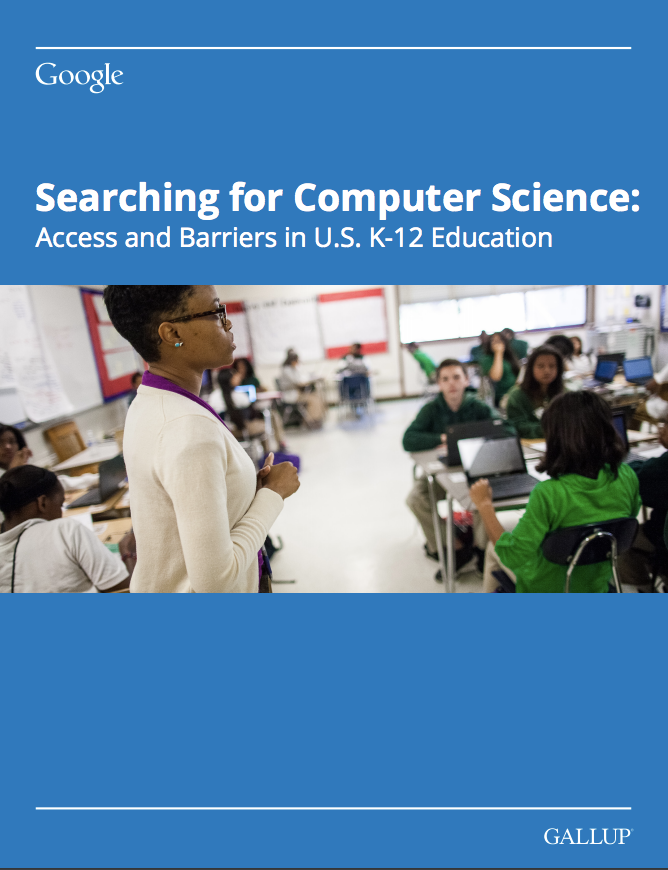
Read Searching for Computer Science: Access and Barriers in U.S. K-12 Education
Examines the reasons why computer science is not a priority in many schools and what this means for rural, Black,...
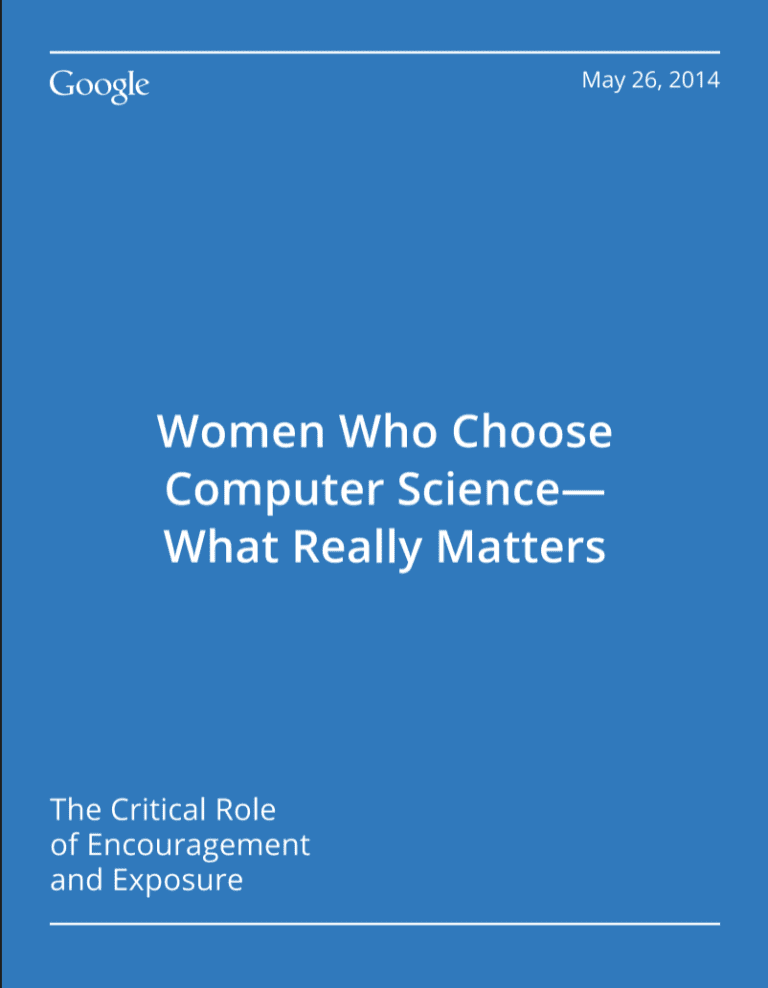
Read Women Who Choose Computer Science: What Really Matters
Summarizes how encouragement and exposure play critical roles in leading women to pursue degrees in computer science. Author(s): Google Publication...
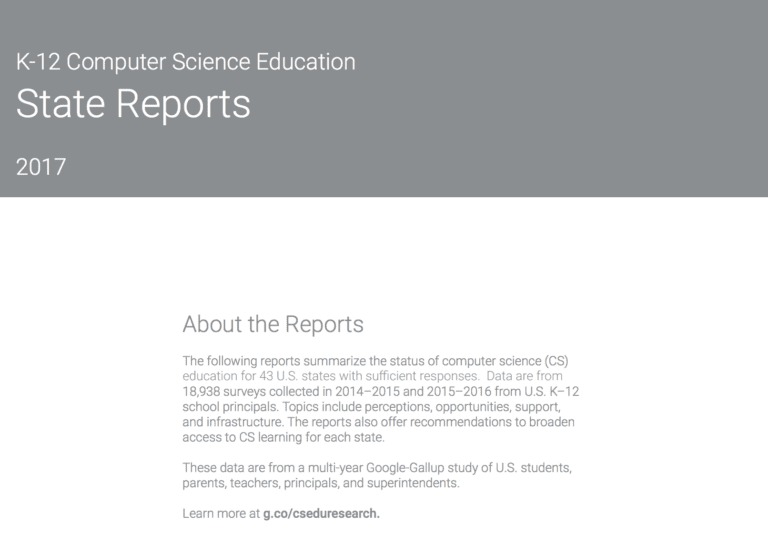
Read K-12 Computer Science Education State Reports
A look at how students, parents, teachers and administrators perceive and experience computer science education in 43 U.S. states. Author(s):...
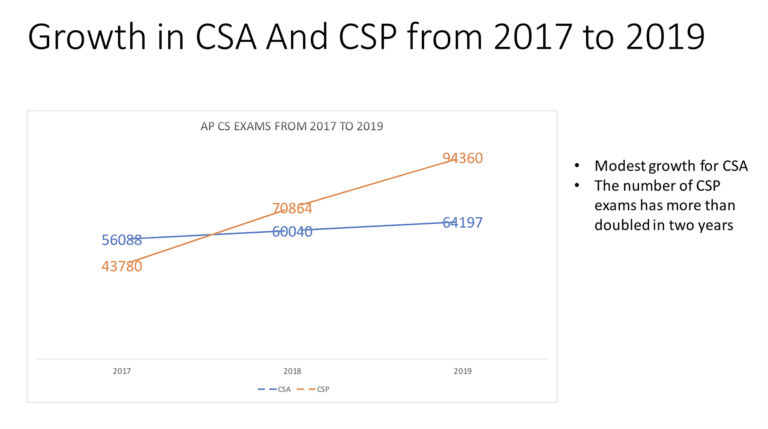
Read Analysis of AP Computer Science Results
Analyzes and visualizes trends from the Advanced Placement (AP) CS A and CS Principles exams. Author(s): Barb Ericson Publication Year:...
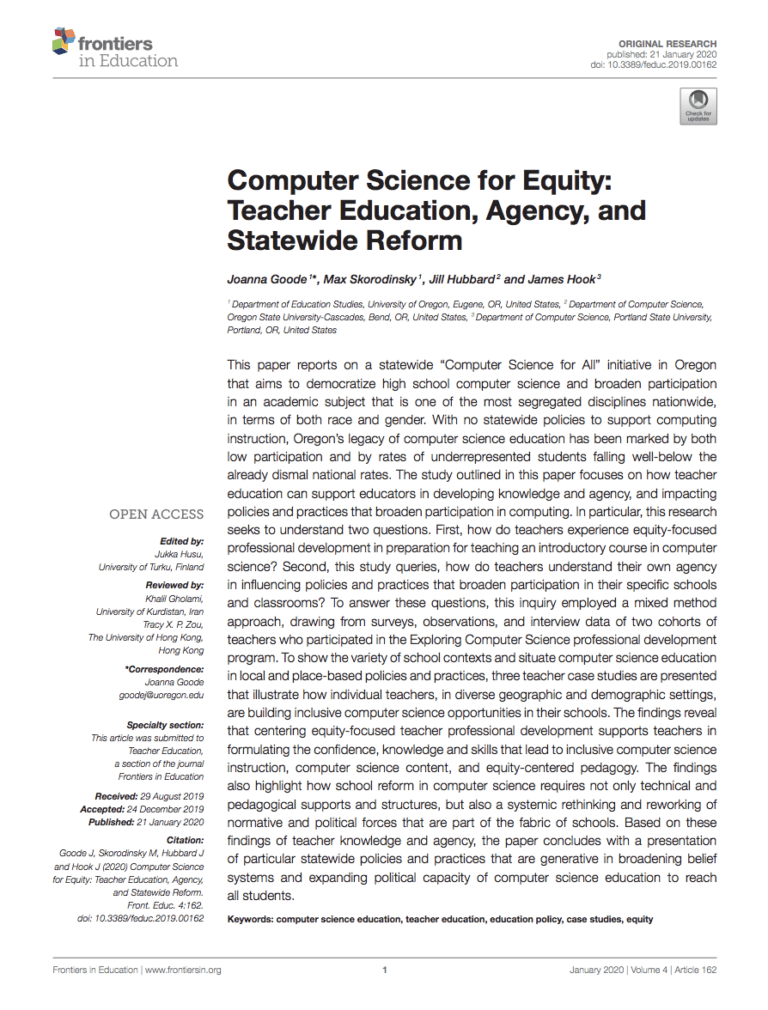
Read Addressing Core Equity Issues in K-12 Computer Science Education
Reports on a statewide “Computer Science for All” initiative in Oregon to inform the efforts of other states seeking to...
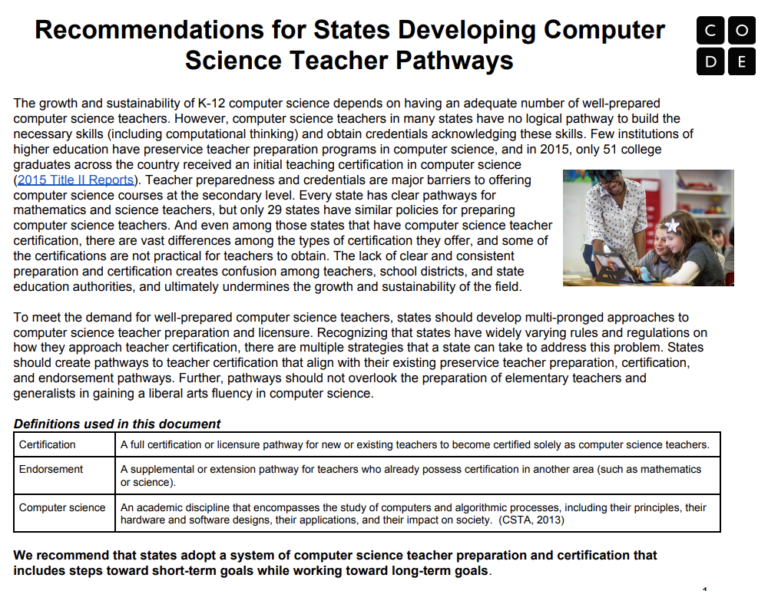
Read Recommendations for States Developing Computer Science Teacher Pathways
Recommendations for secondary CS teacher endorsement and certification and for preservice teacher preparation pathways. Authors: Code.org Publication Year: 2017
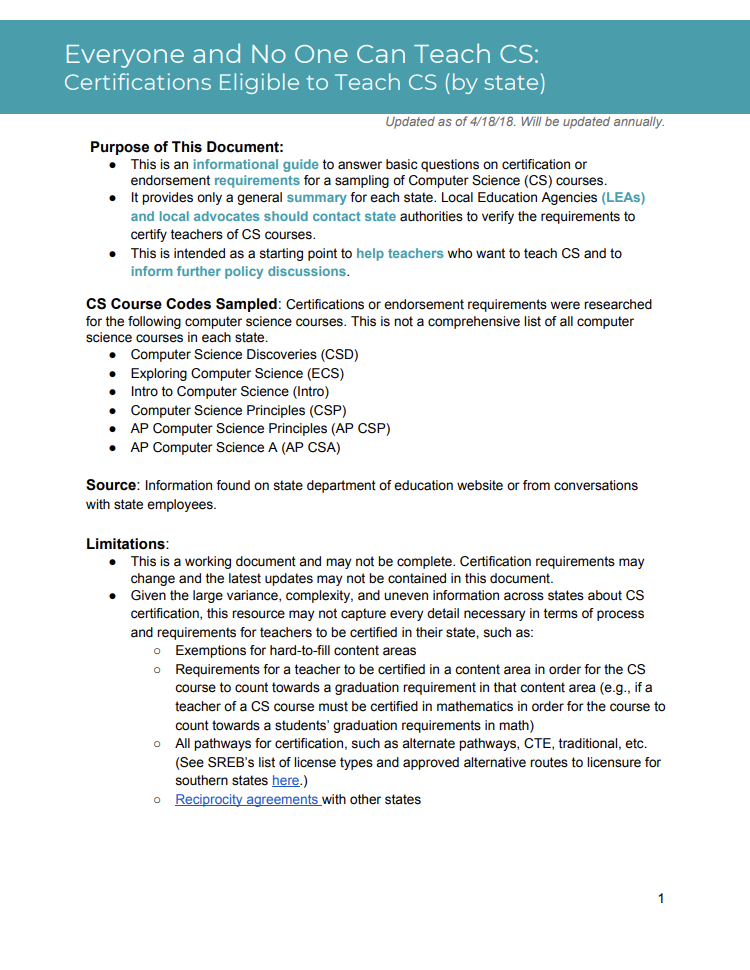
Read Everyone and No One Can Teach CS
Summarizes the K-12 computer science teaching certification or endorsement requirements for each state. Authors: Code.org Publication Year: 2018
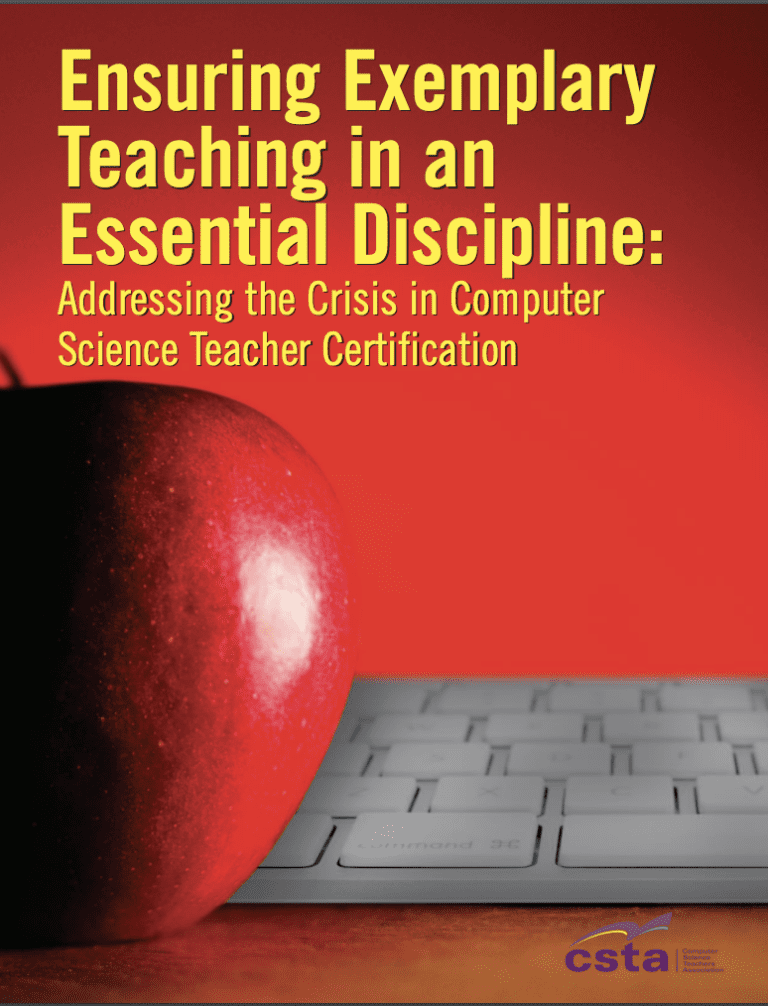
Read Ensuring Exemplary Teaching in an Essential Discipline
Recognizes the lack of consistency in computer science teacher certification standards in the U.S. and worldwide; presents information to ensure...
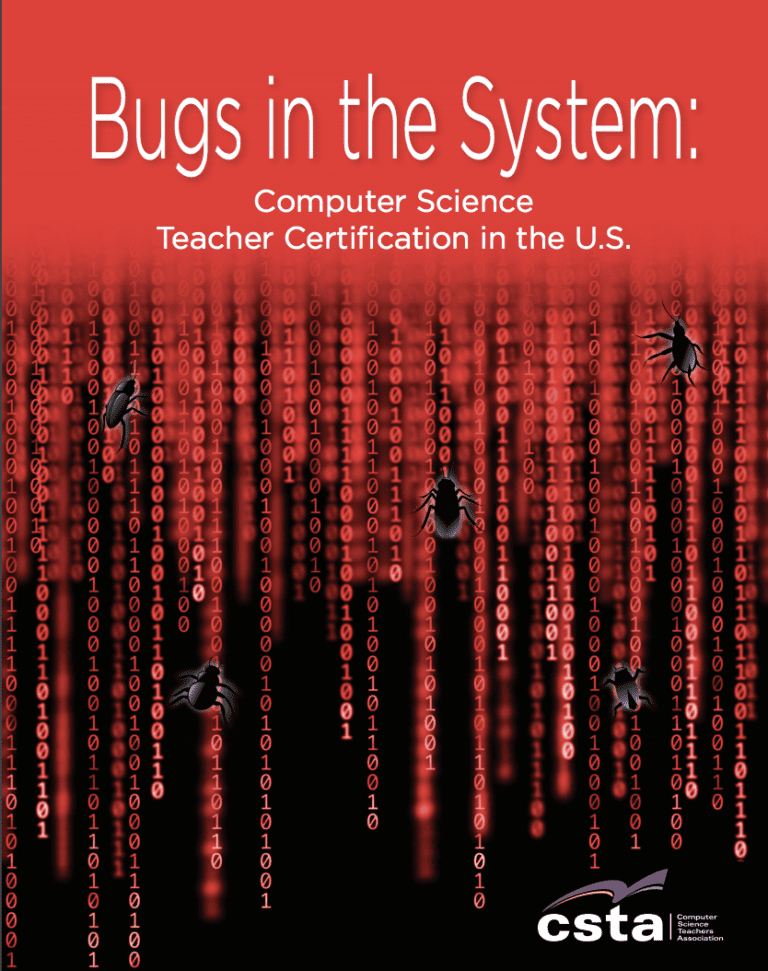
Read Bugs in the System: Computer Science Teacher Certification in the U.S.
Provides policymakers, administrators and educators with a better understanding of the complex issues surrounding computer science teacher certification in the...
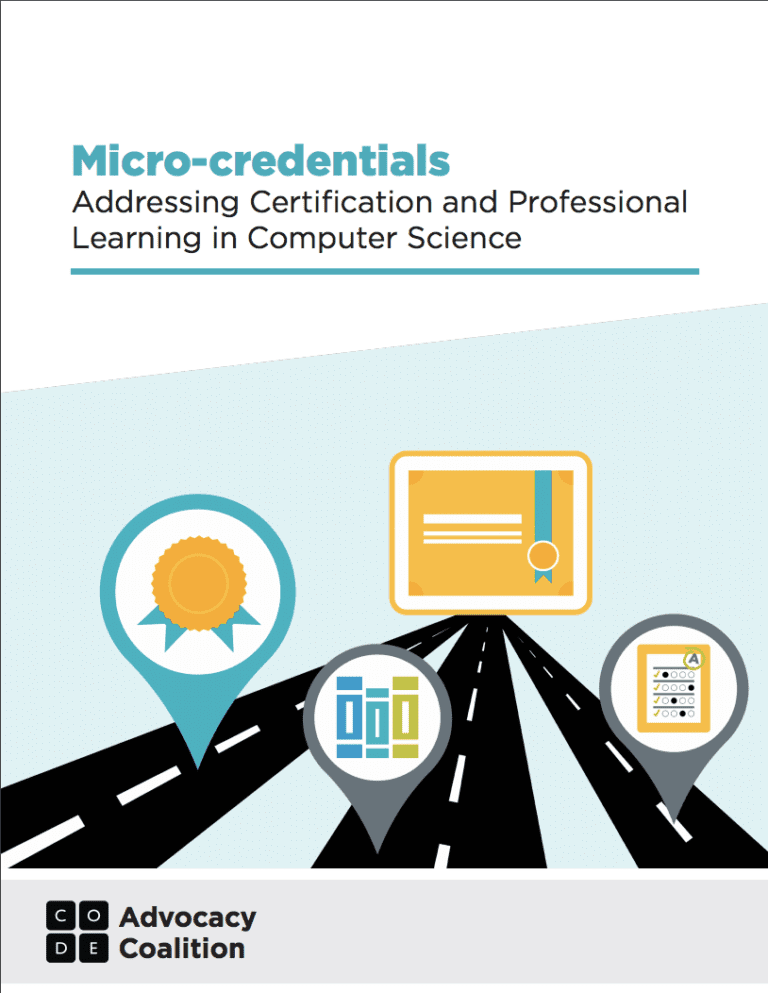
Read Micro-credentials
Addresses certification and professional learning in computer science. Authors: Code.org Publication Year: 2019
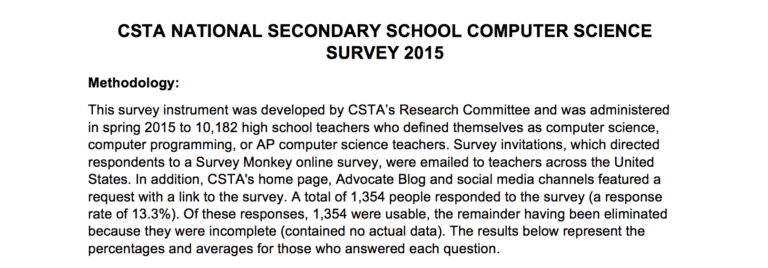
Read CSTA National Secondary Computer Science Survey
National surveys of high school CS teachers that provide research-based information for educators, decision makers, and researchers. Authors: CSTA Publication...
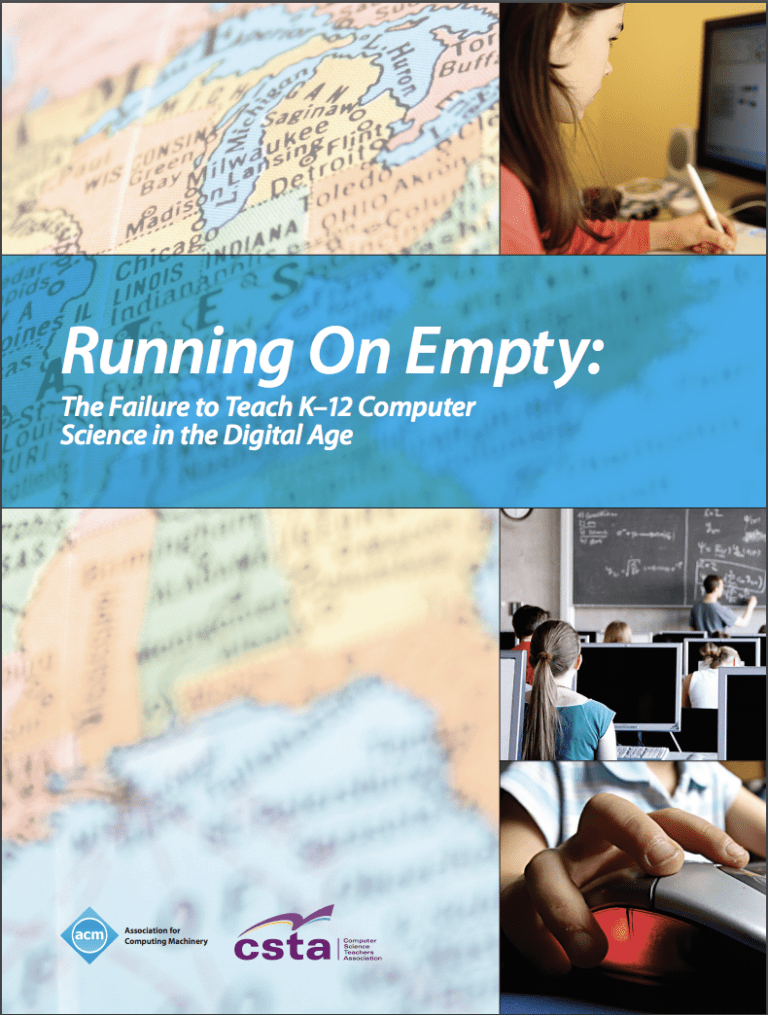
Read Running on Empty: The Failure to Teach K-12 Computer Science in the Digital Age
Identified that two-thirds of the country have few computer science education standards for secondary education and that most treat CS...
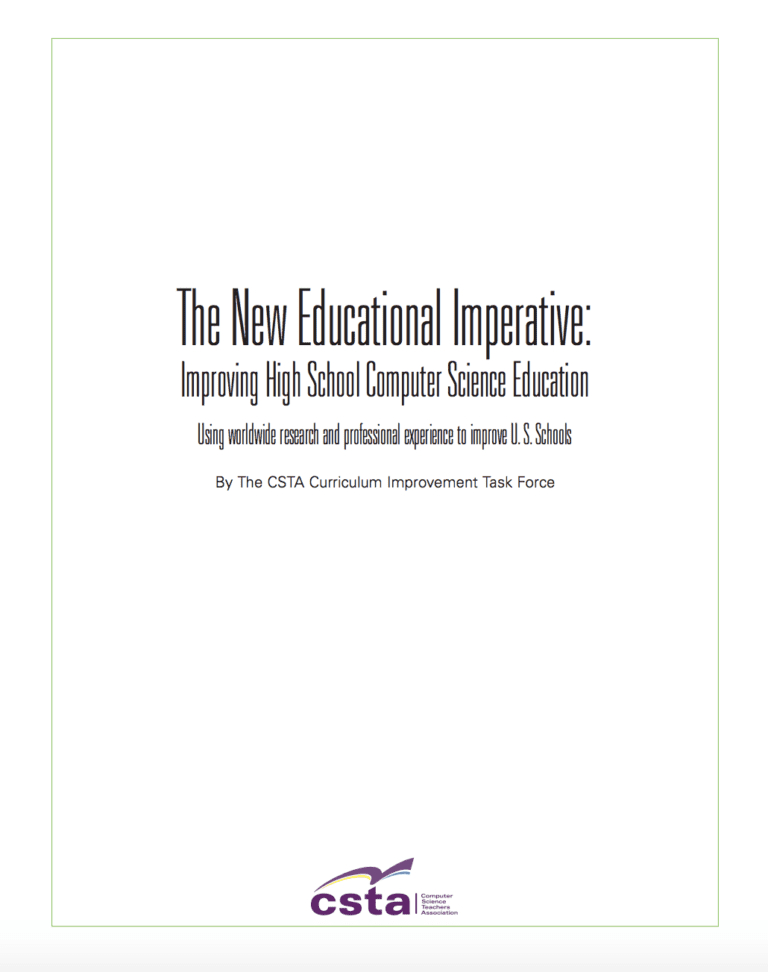
Read The New Educational Imperative
Information on improving high school computer science education by using worldwide research and professional experience. Authors: CSTA Publication Year: 2005

Read Computer Science in K-8: Building a Strong Foundation
A compilation of articles on K-8 CS teaching and learning, with a variety of perspectives, implementation methods, and means of...
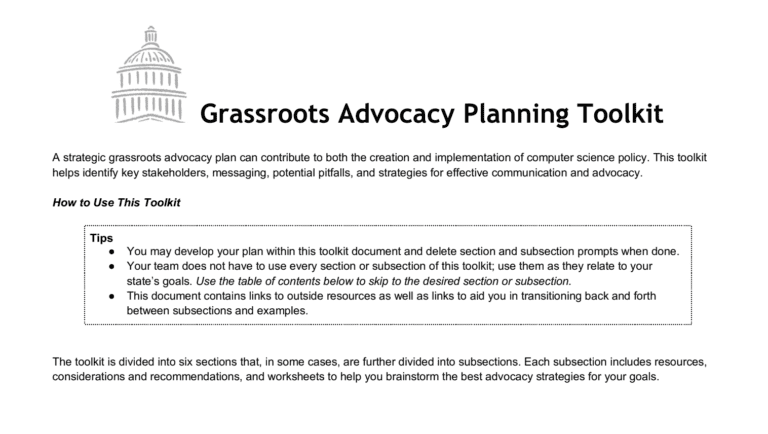
Read Grassroots Advocacy Toolkit
Helps identify key stakeholders, messaging, potential pitfalls, and strategies for effective communication and advocacy. Authors: Code.org Publication Year: 2019

Read Keep Calm and AI On
AI is here. Let’s address challenges and opportunities for teachers, site administrators, and district personnel. Presented by: Gina Fugate, Julie...
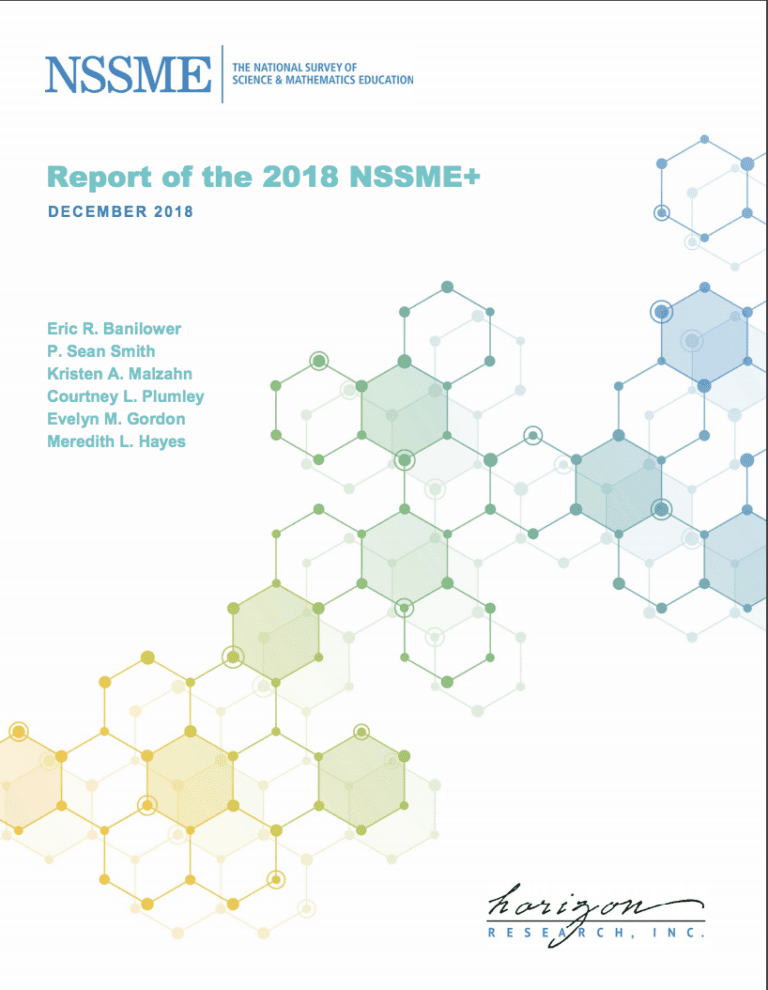
Read NSSME+
National survey of high school science, math, and CS teachers with trends in teacher background and experience, curriculum and instruction,...
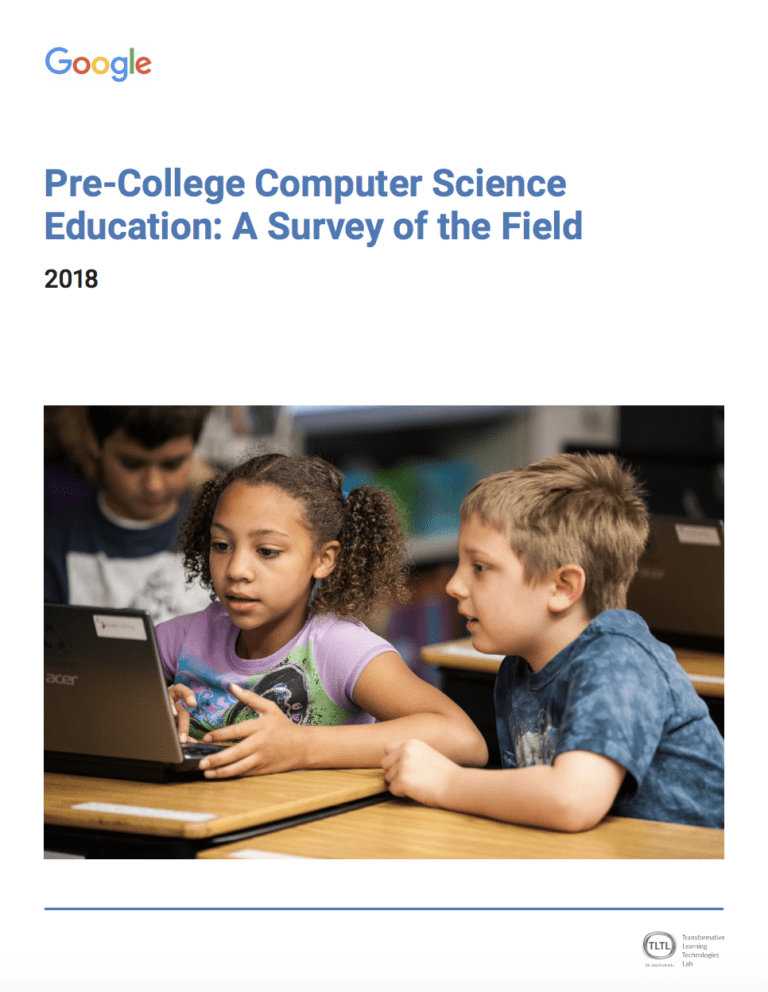
Read Pre-College CS Education Report
Comprehensive review of the current state of K-12 CS ed research, including perspectives of both researchers and practitioners. Authors: Google...

Read How To Effectively Use AI and Not Get Fired
Explore the intersection of protecting privacy and the mitigation strategies teachers can implement to effectively offset the occurrence of bias...

Read How To Become an Equity Fellow
Join the CSTA Education team as they share some tips to successfully apply to become the next Equity Fellow. Presented...

Read Feedback for Wrong Answers in Online Assessment
Learn how students can use wrong answers to enhance their computer science learning. Presented by: Diane Dowling

Read Ethical AI and Tech Justice in K–12 CS Education
How students can discuss and analyze ethical practices in computer science Presented by: Allison Scott and Shana White

